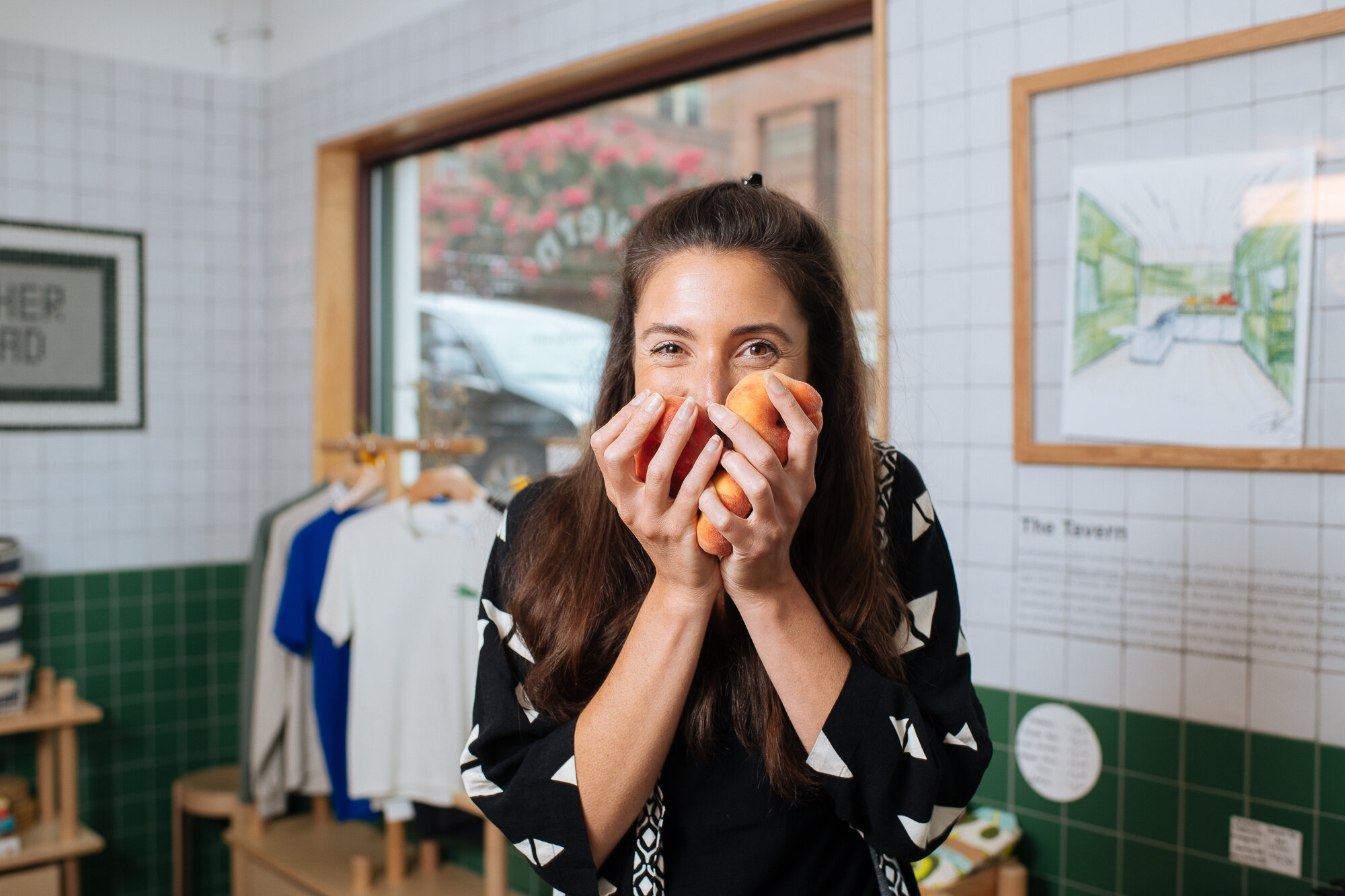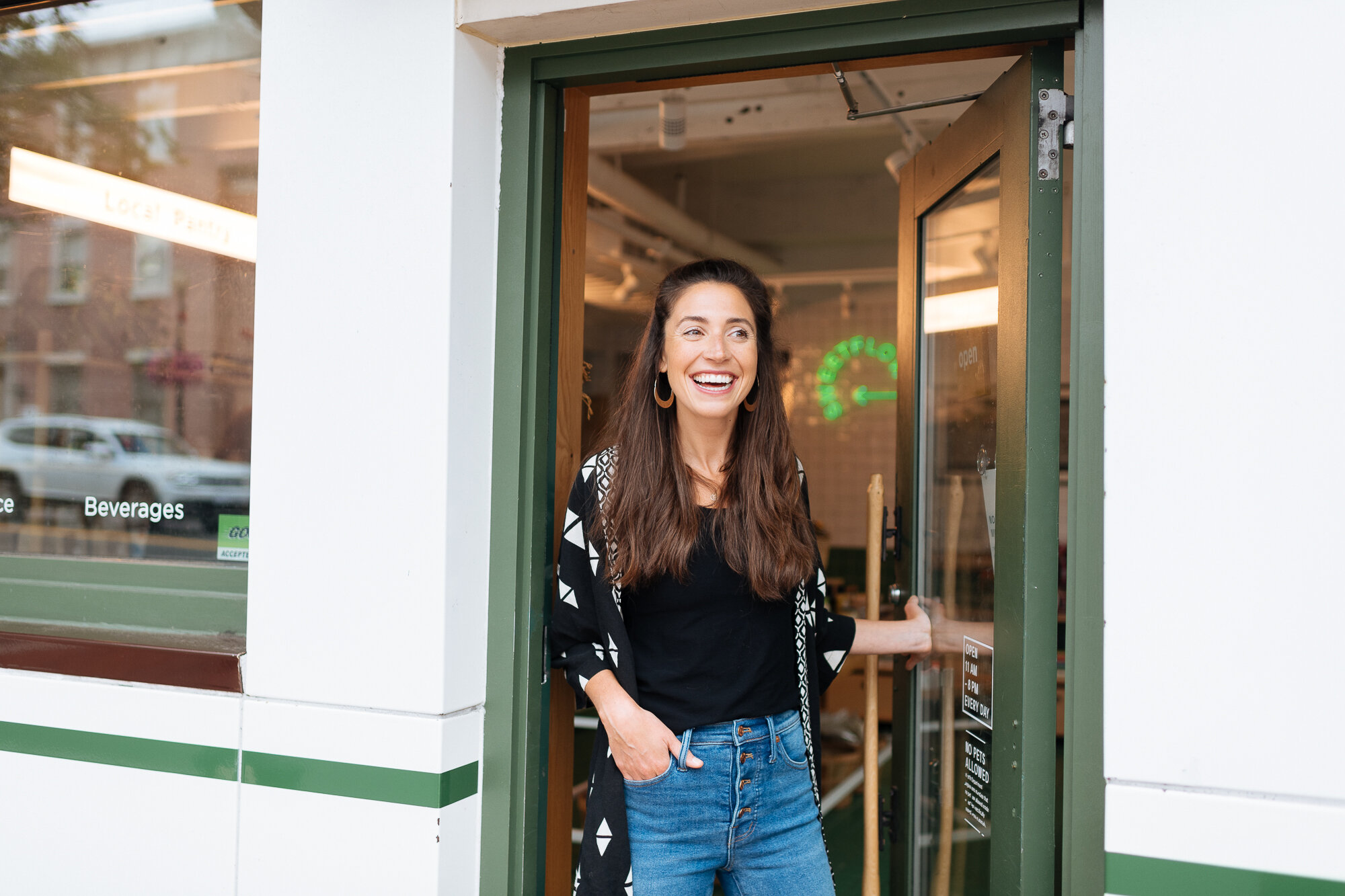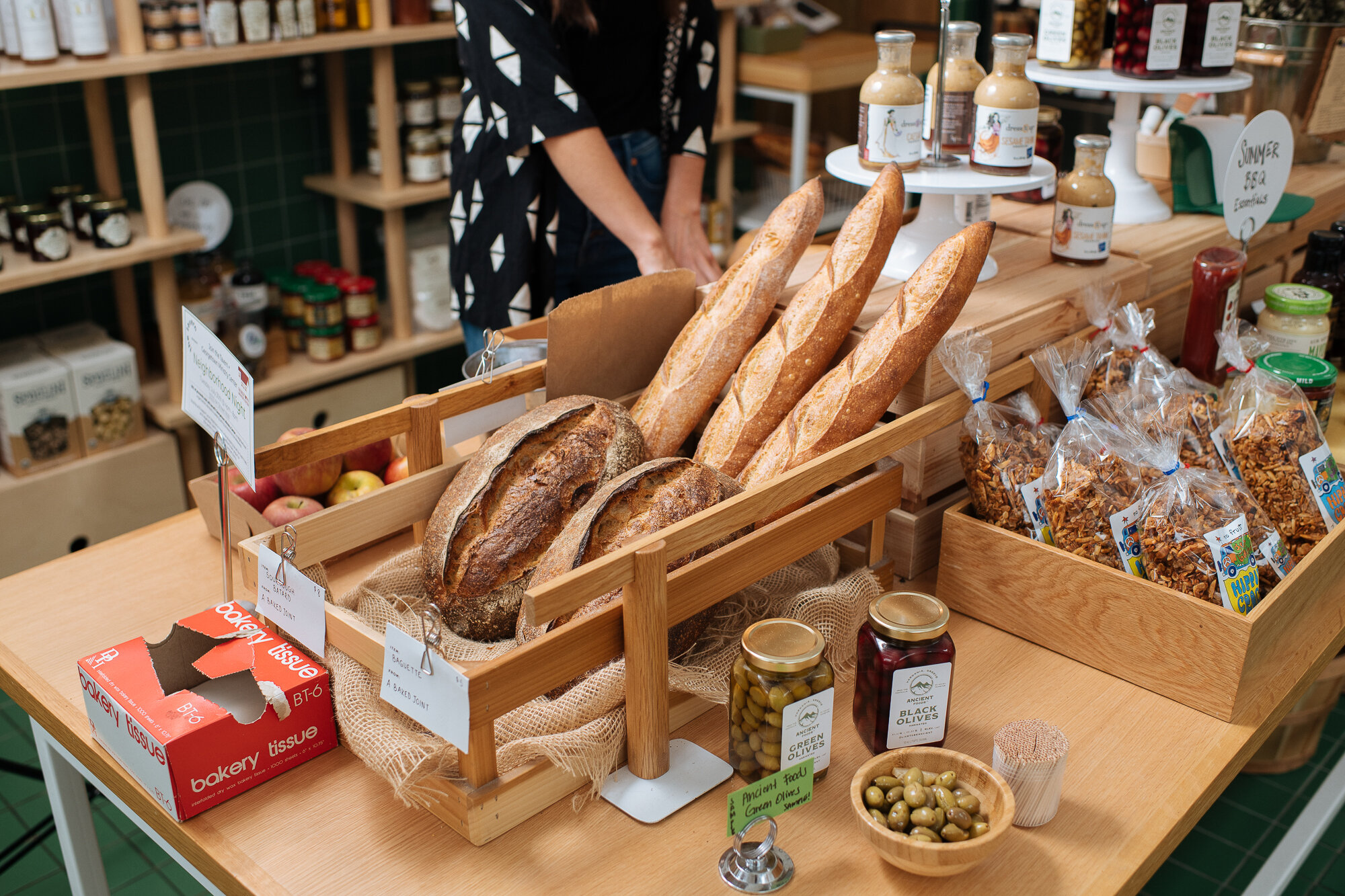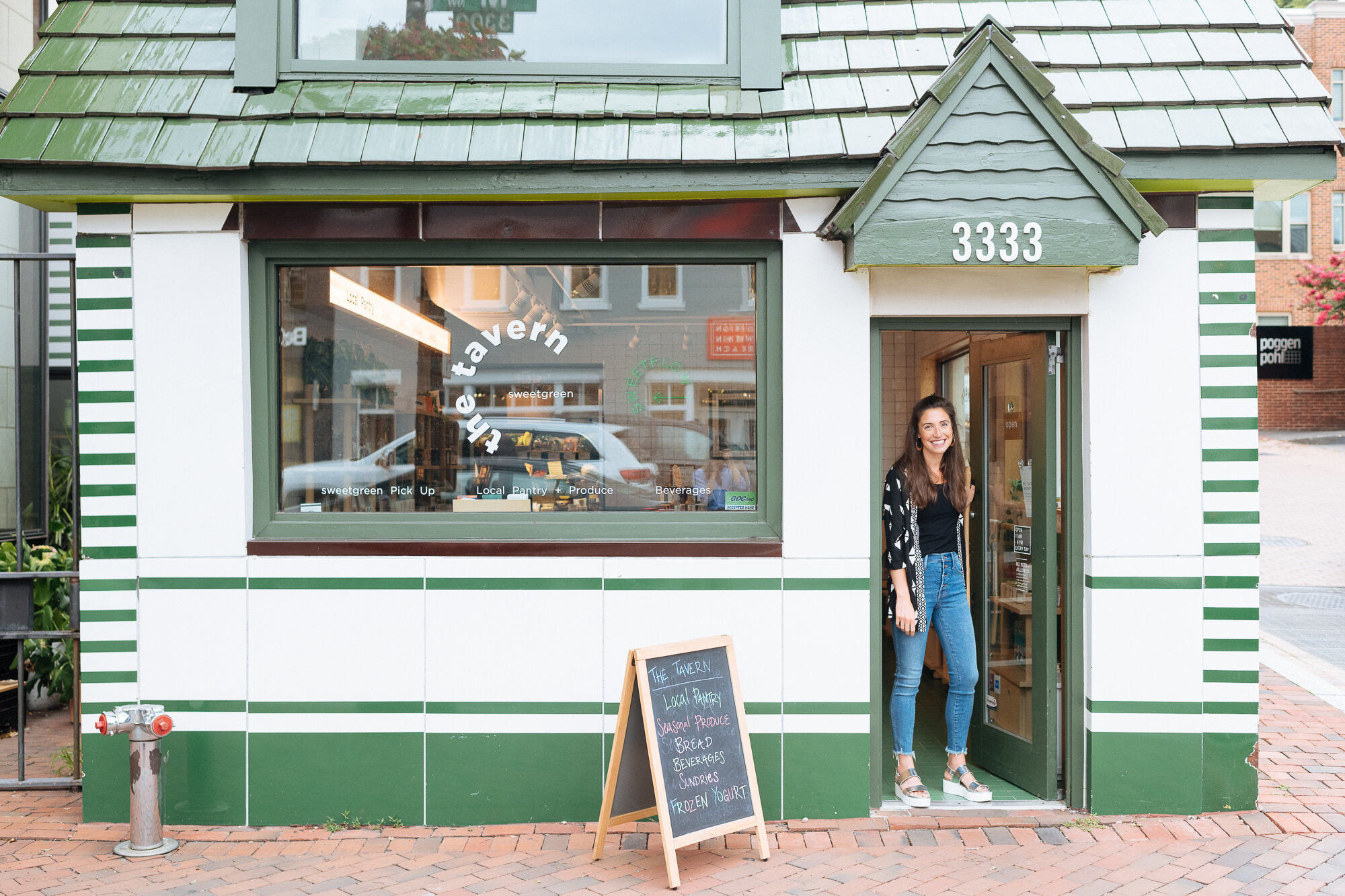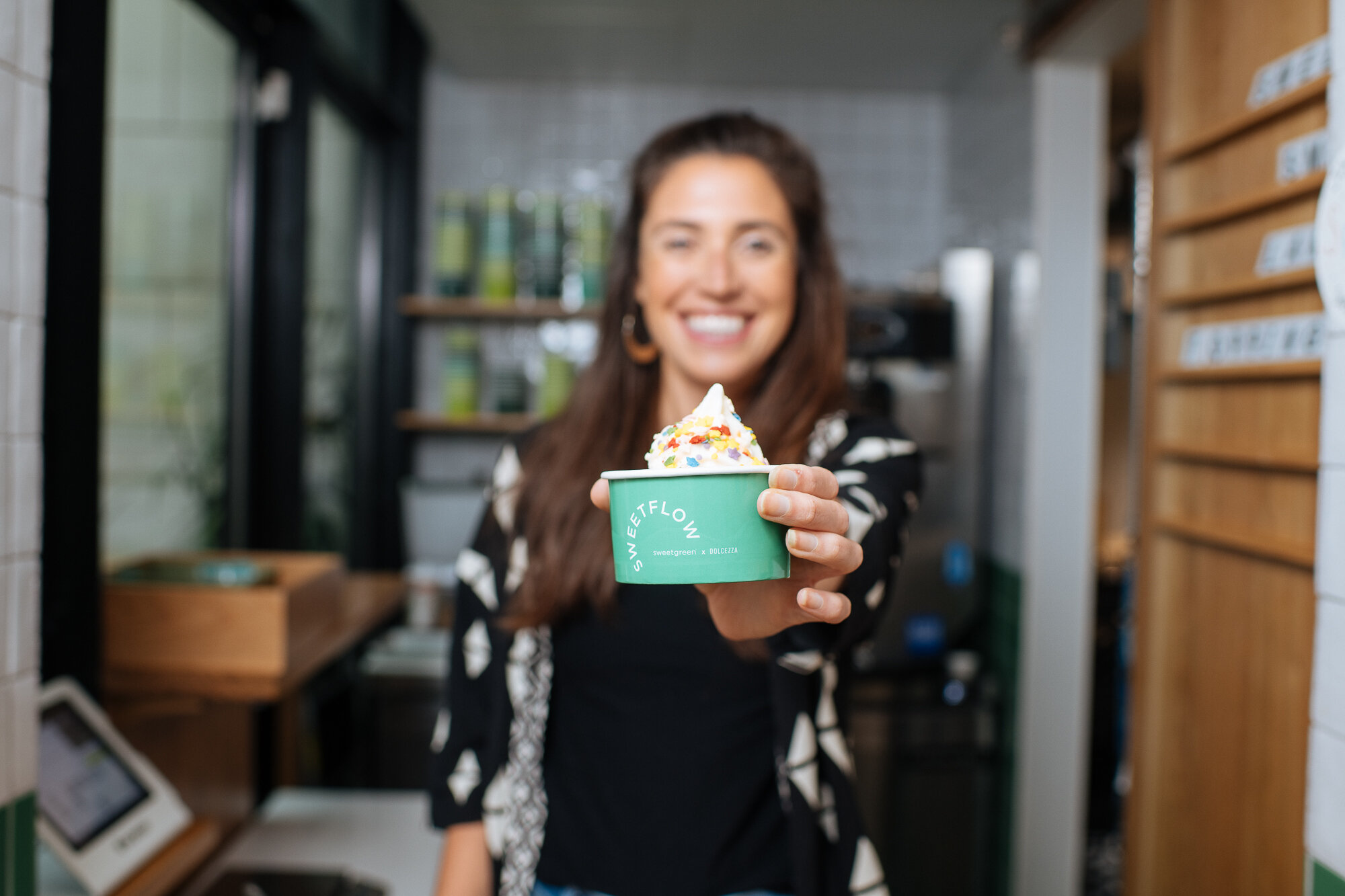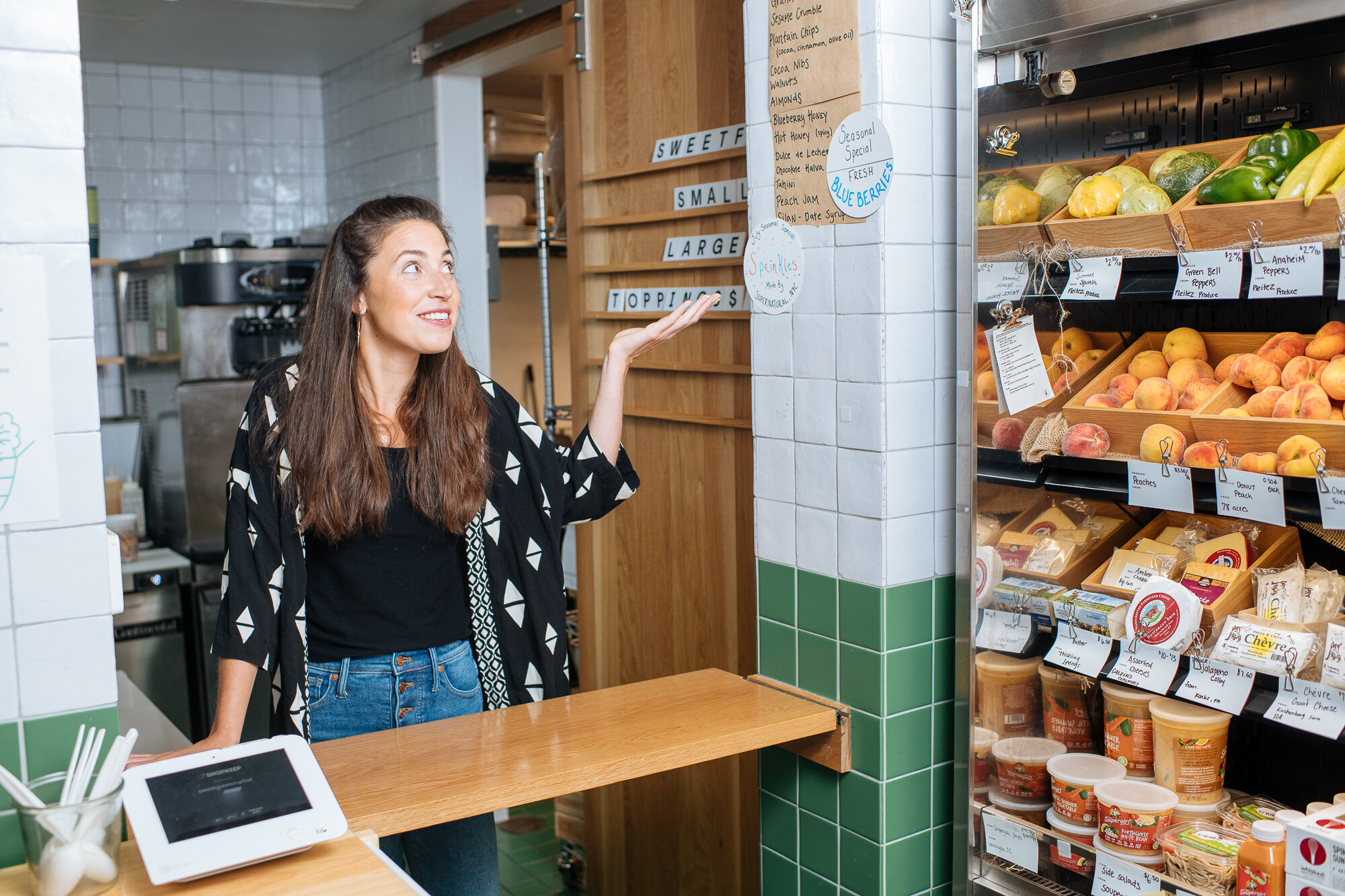‘I’m Interested in the Stories & Community Behind the Food’
Maddie Morales
Manager, The Tavern
3333 M St NW
Maddie Morales didn’t understand a word of the indigenous language spoken by her Chilean host mother, but she spent every day with her in the kitchen, forging a bond that went beyond the spoken word.
For the first time in her life, Maddie recognized the power of food.
‘Even though I couldn’t say anything to her, we were able to create and share meals together. It was eye-opening to see how food can be an avenue for connection with people. The more I traveled, the more I thought about how much community I was missing out on right in my own neighborhood. I wanted to be the type of person who could say to a visitor, ‘Here are the foods that make this place special to me.’’
A product of Midwest suburbia, Maddie grew up eating hot dogs, McDonald’s and mac and cheese. She didn’t know what an eggplant was until she moved to DC, where college friends also introduced her to beets and kale. A semester abroad and an international affairs major further shifted her world view and career ambitions.
In the first of several well-rounded moves that would ultimately lead to The Tavern in Georgetown, Maddie graduated from college and accepted a job at FoodCorps, working in Connecticut schools to improve cafeteria menus, teach kids about healthy food, and create community gardens. She returned to DC to launch a similar program, where she built relationships with non-profits dedicated to improving food access for students throughout the city.
A small stint with the USDA Farm Service Agency at the end of the Obama administration followed.
‘I had to work with USDA’s regulations while I was with FoodCorps, and I really wanted to get to know the beast. I got a quick and dirty birds-eye-view of what was going on at a Federal policy level, which opened my eyes to agriculture. Federal policy affects agriculture, which affects our food access.’
Her understanding of local food supply was further challenged once she transitioned to a wholesale distribution company, working to give farmers access to large-scale buyers.
‘If you’re looking for an easy, affordable solution, it’s not local food. That’s the reality of the situation. People need to be educated enough to understand why it matters and why it’s worth the extra effort.’
While Maddie was at the distribution company, Georgetown’s sweetgreen founders were wrestling with the same questions—exploring a new concept for their original, 500-square-foot space on M Street that would highlight the local farmers markets and vendors they worked with when the salad company first launched.
They landed on a local grocery, The Tavern, and partnered with Roadside Food Project to operate the market. Maddie knew one of Roadside Food Project’s wives through her days at FoodCorps, and was offered a job managing the repurposed space.
‘They knew I was connected to DC’s vendors and makers. This was so different from anything I’d done before, but it was a chance to be on the opposite side of the work I’d already been doing, and walk the walk in a new setting.’
Now one year in at The Tavern, Maddie says her goal is to shine a light on its specialty products—from the return of fan-favorite sweetflow frozen yogurt, to curated olive oil, vinegar, pickles, soup, and cheese. Produce is the other star of the show, sourced largely through a partnership with Community Food Works—an organization dedicated to expanding food access by establishing farmers markets throughout the city.
‘If you think about it, it’s a lot of work for farmers to bring their vegetables into the city. They want to go to the markets that are guaranteed to have the biggest profits. However, low-income neighborhoods need food, too. Community Food Works started a CSA program where they’re aggregating food at their markets that they’re delivering to other neighborhoods. It’s guaranteed income for farmers, and reaching every ward.’
With better quality comes higher prices. Tavern items like specialty jams run on the higher end; potatoes and apples, more affordable than what you’ll find at most farmer’s markets. Maddie says part of her job is educating her customers about the true value of good food.
‘We’re aware that someone may come in once, pick up a jar of peanut butter and see the price, and never come back again because they think everything is a million dollars. We’re trying to change that perception. The goal is to understand why something is expensive or different, and if that’s something that’s meaningful to you that you want to support, hopefully you can be a repeat customer.’
For her part, Maddie’s finally able to put her money where her mouth has been—buying the local food she once worked to distribute, and helping sweetgreen find vendors who share their ethos.
‘I’m interested in local food because of the people and the stories and the community behind it. It’s an opportunity to share that with the community and elevate their stories. There’s also a very strong maker community in DC proper that people are just getting to know. They have amazing products, and I’ve been excited to further highlight the DC born-and-bred people coming up.’
Moving forward, Maddie hopes to see more interest in The Tavern’s CSA program—offering customers a basket full of surprise produce each week. Much of it is familiar, while less familiar items like gooseberries may challenge the way most Americans have been taught to approach cooking.
‘The more people know about local food, the more you understand it’s worth it to get those fruits and vegetables and figure it out, rather than insist on that perfectly ripe avocado and fit it into this perfect recipe you’re trying to follow.’
An experimental chef at home, Maddie dedicates a good portion of her resources to the food she cares about. She also recognizes not everyone is as fortunate.
‘I put the money I work hard to make behind these farmers and vendors, but I also completely understand that’s not accessible for all people. Maybe someday we can all eat delicious, local food.’
Regardless, Maddie says all food is a reflection of culture and community, and should be celebrated—whether you’re eating macaroni and cheese, or kale. As DC’s farmers market community grows with its restaurant scene, she hopes more people will simply ask the right questions.
‘It’s cool to Instagram about food now, but I hope those Instagram posts are forcing people to start digging beyond the beautiful photo and ask what’s actually in that burger, and where did it come from? I hope people are encouraged to ask chefs questions, and I hope chefs are staying true to their claims. I realize I live and work in a silo, but everyone should care about where your food comes from.’
